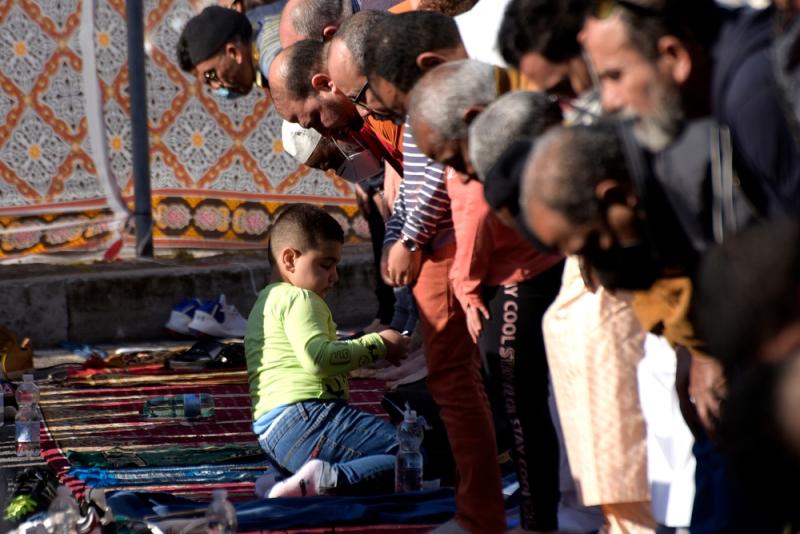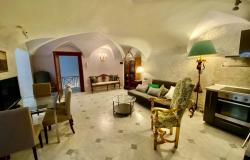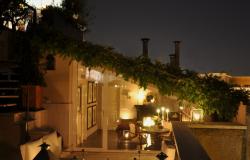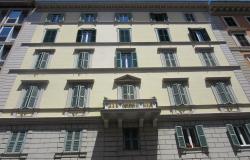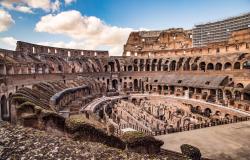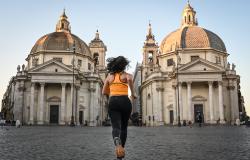The Arab alimentari El Zayat in Rome’s Marconi neighborhood has the familiar din of a minimarket in Cairo. Twinkling lights curtain the facade and a plastic battery-powered sign blinks “Ramadan Kareem.” Customers and staff banter in Arabic, with a few sprinklings of Italian here and there. In a quiet moment between chops on the halal butcher’s block, an elderly man in a top hat — the only other obvious non-Arab in the store — asks me in Italian whether this or that spice would taste good with anchovies. We’re all squished between rows of inflatedly priced canned goods — €7 for tahini! — stacked to the ceiling.
New to the market’s inventory are elements of traditional (albeit mass-produced and disposable) Ramadan decor. Commercial cardboard bins filled with rainbow-colored plastic lanterns (fanus) have been pushed to the front of the store to catch children’s eyes. Ornately patterned prayer rugs rimmed with golden tassels are stacked in heaps.
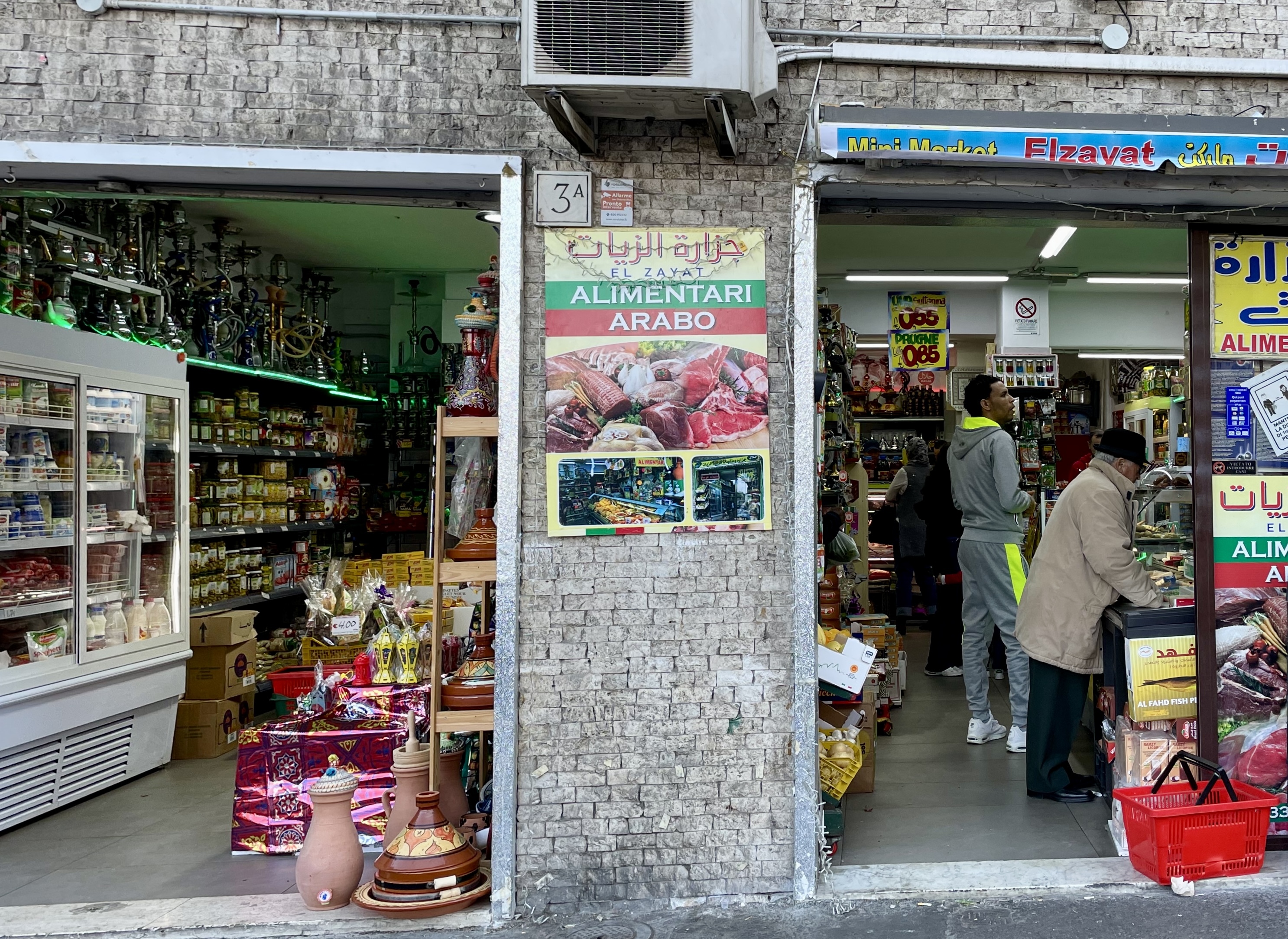
All the foods to keep fasters full are in stock. Goody bags of dates — any type, color or country of origin you desire — are wrapped in shiny cellophane tied with bows. Gift boxes of mixed nuts and platters of carefully arranged cookies are ready to be strewn around a home’s gathering areas and insistently offered to guests. The front counter offers some homemade specialties, like sticky basbusa, and a glass gelateria case contains foods in bulk, like raisins, nuts and qamr el-din (dried apricots), the latter of which can be churned into Ramadan’s most famed drink.
People buzz around the shop — which is still small, despite its recent expansion — ordering cuts of beef and stocking up on these necessities for the upcoming holiday.
A Roman Ramadan
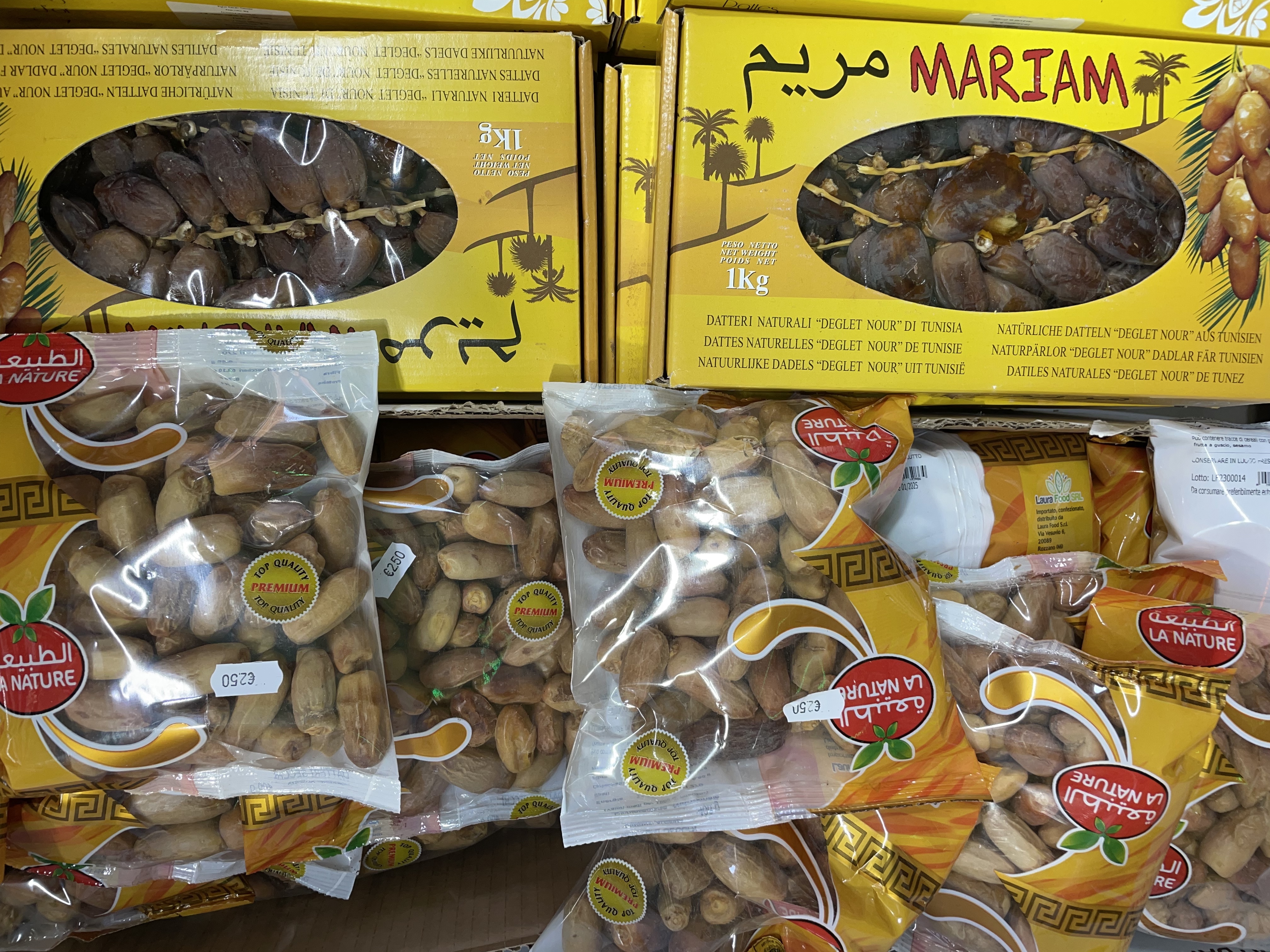
Here in Rome, the de facto home of the Catholic Church, most residents and visitors are preparing for the upcoming Easter celebration. Cafes and supermarkets are chock-full of chocolate eggs, marzipan lambs and colomba cakes; practicing Catholics count down the days until the Pope’s special Urbi et Orbi (“to the city [of Rome] and to the world”) blessing given from St. Peter’s at noon on Easter day.
But in the background, Rome’s Muslim community is also preparing for the holiest month in Islam, Ramadan, which is dedicated to reflection, prayer and community.
The most central aspect of Ramadan is fasting, which is one of the five pillars of Islam. In Muslim-majority countries, life somewhat shuts down during the day. People may half-heartedly go to work, but it’s understood that very little will be accomplished this month.
Fasting is never easy, but fasting alone in a foreign country? Quite a feat.
During Ramadan, Muslims in Italy go to work like everyone else, but they can’t take the usual lunch or coffee breaks. Muslims across the world follow their country’s local time for fasting, which means that observers in Rome will fast from sunrise to 6.30pm at the beginning of Ramadan. By the end of the month, as the days grow longer into summer, the time extends by an hour and a half.
A mosque in the home of Roman Catholicism
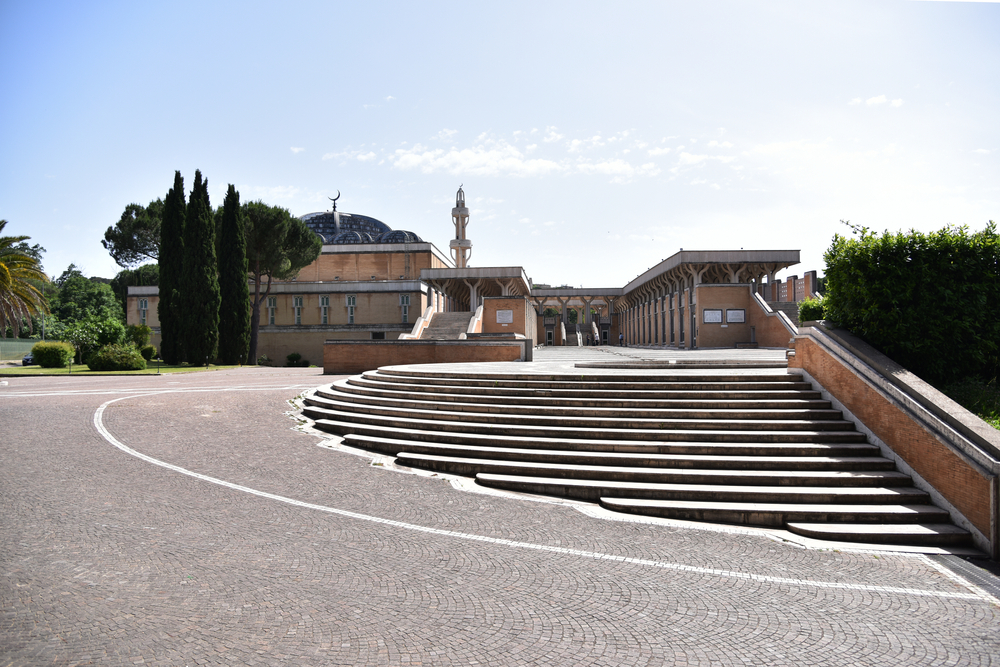
These times revolve around not only the lunar cycle, but also prayer times. The schedule of five daily prayers is particularly adhered to during Ramadan. Prayers can be done at home, but are ideally performed in groups at the mosque. The Grand Mosque of Rome, which doubles as the Islamic Cultural Center of Italy, is the only official mosque in the capital; in terms of surface area, however, it’s among the largest in Europe and North America. It organizes with other local religious groups and volunteers to hold free fast-breaking meals every night of Ramadan.
However, the Grand Mosque is in Rome’s well-off Parioli neighborhood, far removed from the average person’s home or work, so it does not serve as a daily fixture for most Muslims. (For reference, I live in central Rome and it would still take me more than an hour to reach the mosque using public transport.)
Muslim groups, too, often face resistance when trying to receive government approval to build sufficiently sized mosques. The stopgap solution has been nondescript neighborhood “mosques” that have cropped up across the city — and outside the capital as well. These bare-bones rooms — often converted garages or out-of-use warehouses — lack minarets or even the most basic adornment of typical mosques, but serve as practical spaces for people to gather for prayers.
Iftar, Italianized
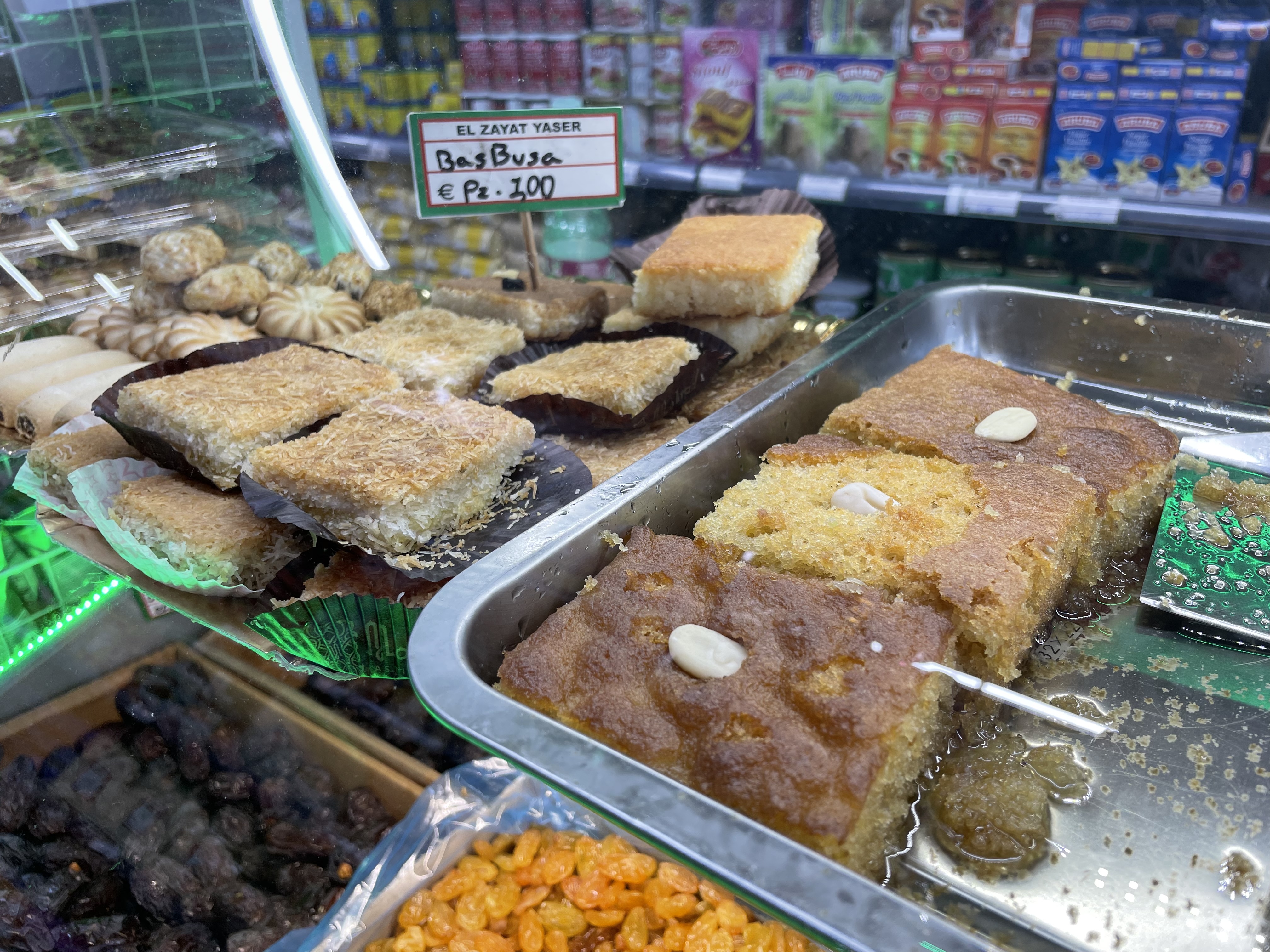
Ramadan is a religious holiday but, like holidays in most other religions, it is equally cultural. Like nearly everything in Islam, Ramadan is not an individual experience but rather a communal festivity. In addition to praying in groups as much as possible, it’s preferable to break the fast at sundown surrounded by other Muslims. Traditionally, people break their fast with the evening iftar meal with heaps of food meant for sharing. Crowd favorites are the special holiday drinks that feature luxurious tastes of coconut milk, carob juice, dates, apricot paste and tamarind, and desserts, like stringy kunafeh. But ingredients for these and other traditional iftar foods, like mounds of stuffed grape leaves and kofta, can be difficult, if not impossible, to find in Rome.
Since most of the ingredients one can find in their home country either don’t exist here or are imported at an exorbitant rate, Ramadan cuisine in Rome is adapted to the local context. Yes, it’s easy enough to find the staples — dates and nuts — but there are many things that only a nonna (in Arabic, teta) can make. If you’re lucky, you might have a friend bring back some dried goods from their most recent visit home that you can store or freeze; the last time my husband and I returned to Rome from his home country of Egypt, we brought dried hibiscus flowers to make karkedeh, a specialty Ramadan beverage.
This is why many Muslims here, especially young people without families, don’t often cook their own iftar meals unless they go for a full-on Italian iftar of pasta or pizza. In search of a traditional iftar, Muslims flock to one of a few local restaurants, like Ali Baba or the popular Syrian catering-service-turned-restaurant, Hummustown (which recently opened a kiosk in the central Piazza della Repubblica). In places like this, crowds gather in anticipation as the sun starts to set.
Others use channels like Facebook to connect with Muslim grandmas who might be willing to whip up some traditional iftar dishes — for the right price.
It’s rare to see any marketing related to Ramadan gatherings or special meals; knowing where to go and when requires entry into the local Muslim network, which is largely based on word-of-mouth.
Making Ramadan work — or not — in Rome
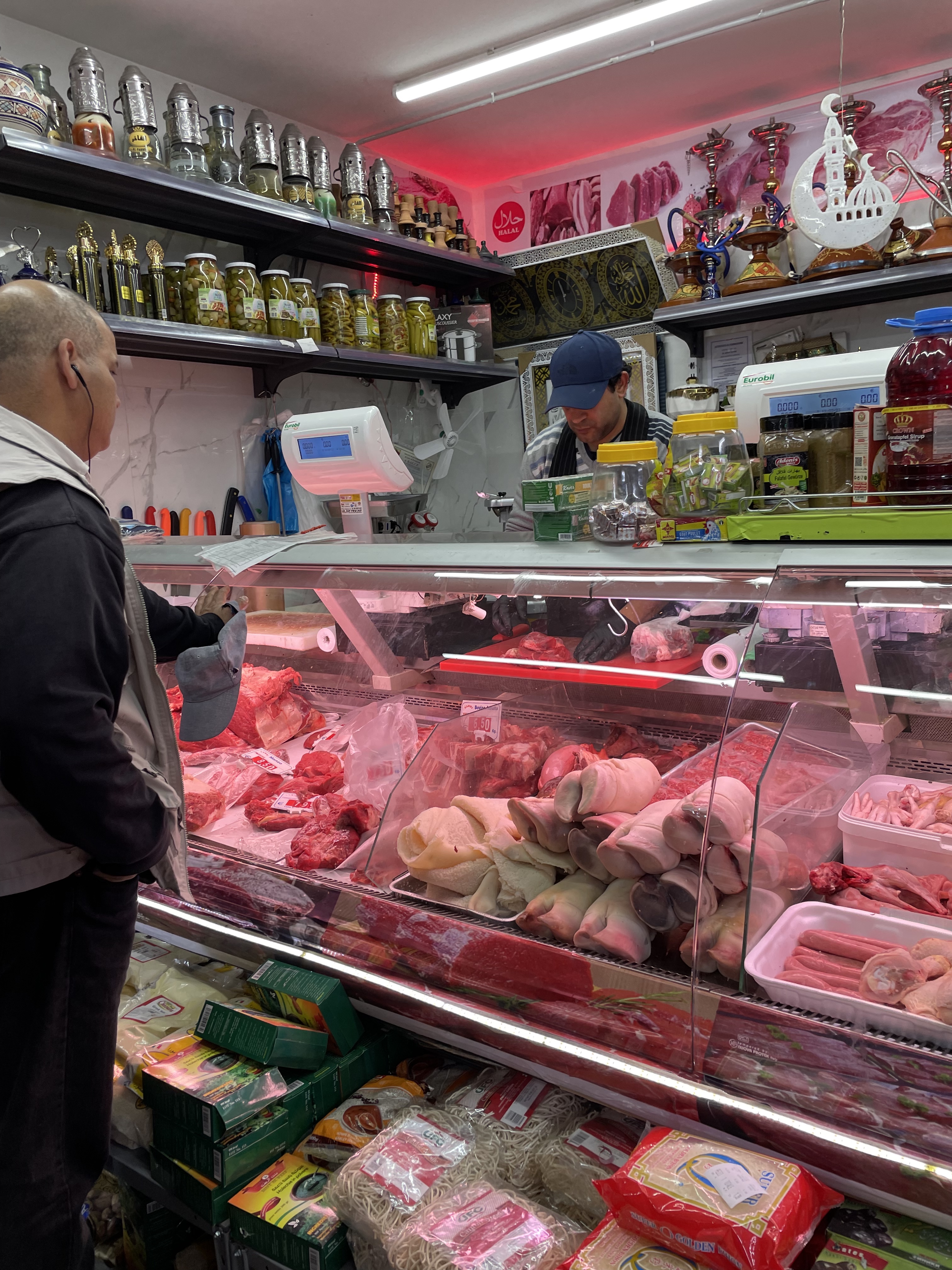
There seem to be two options when it comes to practicing Ramadan in Italy: adapt or abandon. In a Muslim-majority country, it’s easy to adhere to Ramadan. Not so much in Italy. In order to make it work, practices have to be adapted to the local context.
Naturally, you’ll have some that find practicing Ramadan here too challenging. Others find innovative ways to make Ramadan work in Rome. They pray at the mosque — where people speaking different languages join together in shared faith — as much as they can. They make their own “family” gatherings with friends that feel like family. They seek out camaraderie in the local Muslim community that expands with every shared iftar at a kebab shop or in the park with friends.
If you go
Institutionally, Ramadan will kick off in Rome around 8pm tonight, March 22, after a new moon monitoring hosted by representatives from several Islamic organizations and astronomical observatories. Ramadan will conclude with Eid al-Fitr on April 22.
Alimentari El Zayat
Via Giovanni Volpato 5, 00146 Rome
Tel. +39 339 1660314
Grand Mosque of Rome
Viale della Moschea 85, 00197 Rome
Tel. +39 068 082258
Ristorante Alibabà
Via dell'Arco di Travertino, 27, 00178 Rome
Tel. +39 068 8979701
Hummustown kiosk
Piazza della Repubblica (at the intersection with Via Luigi Einaudi), 00185 Rome
Tel. +39 389 8930310
Instagram
